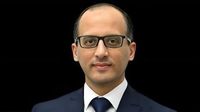The Egyptian government is currently in the process of revising the sports law, with discussions ongoing among officials and stakeholders. Consultant Muhammad Al-Hammasani, the spokesperson for the Council of Ministers, confirmed that the sports law has not yet been adopted and remains under review. This law is expected to be issued in the near future after modifications to certain articles and detailed discussions. Importantly, the government has emphasized that the law is not aimed at targeting any specific club or entity.
In a statement made on April 10, 2025, Dr. Mustafa Madbouly, the Chairman of the Council of Ministers, reiterated that the new sports law is still being studied and has not yet been approved. He pointed out that the modifications are intended to serve the public interest and are designed to be beneficial for the future of sports in Egypt.
Dr. Madbouly also highlighted the government's commitment to ensuring a strategic stock of food commodities and petroleum products, which is crucial for stabilizing local markets and addressing any economic fluctuations. This statement reflects the government's broader economic strategy amidst current global economic challenges.
Furthermore, Dr. Madbouly announced plans to expand investment opportunities in gold, noting that 180,000 citizens have already shown interest in gold investment, amounting to 600 million Egyptian pounds. He also mentioned that an Egyptian company is set to increase its investments in natural gas production in the coming period.
On a related note, the Prime Minister addressed the potential inclusion of mothers' names on national identification cards, stating that this matter is under consideration with relevant ministries. He emphasized the importance of governance in the arms market, which he believes plays a significant role in ensuring food security.
In addition, the government is preparing to offer several companies affiliated with the armed forces for public bidding, while also exploring ways to utilize ministry revenues effectively while preserving their historical and architectural significance.
Dr. Madbouly described the current global economic landscape as a commercial and economic war, rather than a military conflict, urging countries to focus on survival and achieving their interests. He has tasked economic ministries with developing specific scenarios to maintain economic stability and enhance investment opportunities.
Meanwhile, the recent visit of French President Emmanuel Macron to Egypt has been characterized as historic, with Dr. Madbouly noting the strong support from the Egyptian populace for their leadership. This visit has solidified bilateral cooperation, resulting in several agreements in sectors such as health and higher education.
In a related development, Al-Ahly Club has formally requested to review the proposed amendments to the sports law. On April 9, 2025, the club sent a letter to Prime Minister Madbouly, stressing the importance of community dialogue to ensure that the amendments align with the Egyptian constitution and international standards, including the Olympic Charter.
In its letter, Al-Ahly emphasized the Egyptian government's commitment to transparency in decision-making, which is deemed essential for addressing challenges facing the nation. The club pointed out that amendments proposed by the Minister of Sports have not been made accessible to sports organizations for unknown reasons, despite the collective desire to enhance the sports landscape in Egypt.
Al-Ahly's communication with Ashraf Sobhi, the Minister of Youth and Sports, prior to the letter, indicates a proactive approach in seeking input on the amendments and presenting suggestions that would benefit Egyptian sports.
The proposed amendments have sparked considerable debate over aspects such as the potential privatization of clubs and the application of an eight-year term limit for club and federation presidents. These discussions reflect the broader concerns within the sports community regarding governance and the future direction of sports legislation in Egypt.
As the government continues its deliberations on the sports law, the emphasis remains on fostering an environment conducive to growth and transparency in the sports sector. The outcome of these discussions will likely have far-reaching implications for the governance of sports in Egypt, influencing not only clubs but also athletes and the broader sporting community.
In conclusion, the ongoing discussions surrounding the sports law highlight the need for a balanced approach that considers the interests of all stakeholders involved. As Egypt navigates these legislative changes, the commitment to transparency and collaboration will be crucial in shaping a positive future for sports in the country.





